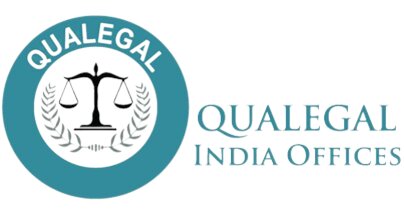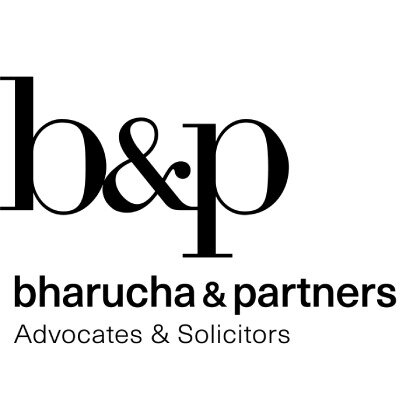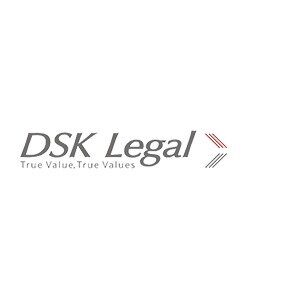Best Restructuring & Insolvency Lawyers in New Delhi
Share your needs with us, get contacted by law firms.
Free. Takes 2 min.
List of the best lawyers in New Delhi, India
About Restructuring & Insolvency Law in New Delhi, India
Restructuring and insolvency law in New Delhi is a specialized area designed to help businesses and individuals manage financial distress. The laws aim to provide efficient resolution processes, protect creditors' rights, and where possible, allow viable entities to restructure their debts and operations. New Delhi, as the capital city and a major commercial hub, sees frequent use of these legal frameworks by corporations, financial institutions, and entrepreneurs. The Insolvency and Bankruptcy Code, 2016 (IBC) is the cornerstone legislation guiding insolvency and restructuring in India, streamlining processes for all stakeholders and offering mechanisms either to rescue debtors or facilitate liquidation when necessary.
Why You May Need a Lawyer
Legal expertise is crucial in restructuring and insolvency matters because of their complexity and urgent nature. Common situations where you may need legal help include:
- Your business is financially distressed and needs to restructure its debts or operations to avoid insolvency. - You are an individual facing insolvency, with debts you cannot repay. - You are a creditor seeking to recover outstanding dues from insolvent companies or individuals. - You are a stakeholder in a company entering insolvency resolution, such as a shareholder, employee, or trade partner. - You want to initiate proceedings under the IBC, either as a debtor or creditor. - There are disputes over assets, claims, or the distribution of proceeds from liquidation. - You need guidance in preparing and submitting legal documentation required by tribunals. - You must navigate negotiations between multiple parties, such as lenders, investors, or resolution professionals. - You are concerned about potential personal liabilities as a company director or promoter. - You seek advice on alternative resolution and restructuring options outside formal court processes.
Local Laws Overview
New Delhi is governed by the Insolvency and Bankruptcy Code, 2016, which applies nationwide and covers insolvency and restructuring processes for companies, limited liability partnerships, and individuals. Key aspects relevant in New Delhi include:
- Jurisdiction: The National Company Law Tribunal (NCLT), Principal Bench in New Delhi, oversees corporate insolvency matters within its territorial scope. - Initiation of Proceedings: Both financial and operational creditors, as well as debtors themselves, can initiate insolvency resolution. - Moratorium: Once a petition is admitted by NCLT, a moratorium is imposed, halting all legal proceedings and recovery actions against the debtor. - Resolution Professional: An insolvency professional is appointed to manage the process, including the formation of a creditors' committee. - Resolution Plans: The committee of creditors considers proposals to revive the entity, which must receive tribunal approval to take effect. - Liquidation: If no resolution plan succeeds, the entity may go into liquidation, governed by specific procedures to distribute assets. - Individual Insolvency: Special provisions also apply to individuals and partnerships, though many are still being implemented in phases. - Regulatory Authorities: The Insolvency and Bankruptcy Board of India (IBBI) and NCLT oversee and regulate practitioners and proceedings. - Local Rules: New Delhi follows national laws, but there may be local procedural guidelines and documentation formats specific to the NCLT, Principal Bench.
Frequently Asked Questions
What is the Insolvency and Bankruptcy Code, 2016?
The Insolvency and Bankruptcy Code (IBC) is a comprehensive law that governs the process of insolvency and bankruptcy for companies, partnerships, and individuals in India. It aims to consolidate existing laws and provide a time-bound resolution to financial distress.
Who can start insolvency proceedings in New Delhi?
Both creditors (financial and operational) and debtors can initiate insolvency proceedings by applying to the NCLT. This includes banks, suppliers, employees, and the companies or individuals themselves.
What is the role of the National Company Law Tribunal (NCLT)?
The NCLT is a specialized tribunal that hears and decides all matters related to corporate insolvency and restructuring. In New Delhi, the Principal Bench handles cases within its jurisdiction.
What happens once insolvency proceedings are admitted?
A moratorium is imposed, which stops all legal actions and recovery proceedings against the debtor. An insolvency professional takes over management and a committee of creditors is formed to explore possible resolutions.
Can individuals file for insolvency in New Delhi?
Yes, individuals and partnerships can file for insolvency under specific provisions of the IBC, although these are being implemented gradually. Separate regulations govern these proceedings.
How long does the insolvency resolution process take?
The IBC prescribes a 180-day process for corporate insolvency resolution, extendable by a maximum of 90 days. In practice, the time may vary depending on case complexity and tribunal workload.
What happens if a resolution plan is not found?
If creditors do not approve a resolution plan or if the process is unsuccessful, the entity proceeds to liquidation, where assets are sold and proceeds are distributed among creditors as per priority.
Can directors or promoters be held personally liable?
Directors and promoters can face personal liability for wrongful trading, fraudulent conduct, or other violations. Legal advice is recommended to understand exposures and defenses.
Are out-of-court settlements possible?
Yes, parties may explore settlements and restructuring outside formal insolvency proceedings. However, once the process has begun under IBC, the tribunal must approve any resolution.
What documents are required to initiate insolvency?
The required documents include evidence of debt, proof of default, company incorporation details, notices served, and supporting financial information. Legal assistance helps ensure completeness and compliance with tribunal requirements.
Additional Resources
- National Company Law Tribunal (NCLT), Principal Bench, New Delhi: Adjudicates corporate insolvency matters within its jurisdiction. - Insolvency and Bankruptcy Board of India (IBBI): Regulates insolvency professionals, agencies, and monitors proceedings. - Ministry of Corporate Affairs: Oversees legislative and regulatory aspects of corporate insolvency. - Delhi High Court Legal Services Committee: Offers legal aid and support services for eligible parties. - Registered insolvency professionals and law firms in New Delhi: Can provide specialized legal representation and advice. - Bar Associations and local legal clinics: Useful for referrals and preliminary consultations.
Next Steps
If you are facing or anticipating financial distress, or are involved as a creditor or stakeholder in an insolvency matter, consider the following steps:
- Collect and organize all financial documents, contracts, and correspondence related to the matter. - Consider your options and the outcomes you desire - whether restructuring, debt settlement, or asset recovery. - Consult with a qualified restructuring and insolvency lawyer in New Delhi to assess your position, legal rights, and potential risks. - Verify that your lawyer or insolvency professional is registered with IBBI and familiar with local tribunal practices. - Be proactive and seek guidance early - timely actions can maximize your chances of a favorable resolution.
Navigating restructuring and insolvency is complex and time sensitive. Legal advice ensures you take informed decisions and protect your interests throughout the process.
Lawzana helps you find the best lawyers and law firms in New Delhi through a curated and pre-screened list of qualified legal professionals. Our platform offers rankings and detailed profiles of attorneys and law firms, allowing you to compare based on practice areas, including Restructuring & Insolvency, experience, and client feedback.
Each profile includes a description of the firm's areas of practice, client reviews, team members and partners, year of establishment, spoken languages, office locations, contact information, social media presence, and any published articles or resources. Most firms on our platform speak English and are experienced in both local and international legal matters.
Get a quote from top-rated law firms in New Delhi, India — quickly, securely, and without unnecessary hassle.
Disclaimer:
The information provided on this page is for general informational purposes only and does not constitute legal advice. While we strive to ensure the accuracy and relevance of the content, legal information may change over time, and interpretations of the law can vary. You should always consult with a qualified legal professional for advice specific to your situation.
We disclaim all liability for actions taken or not taken based on the content of this page. If you believe any information is incorrect or outdated, please contact us, and we will review and update it where appropriate.

















